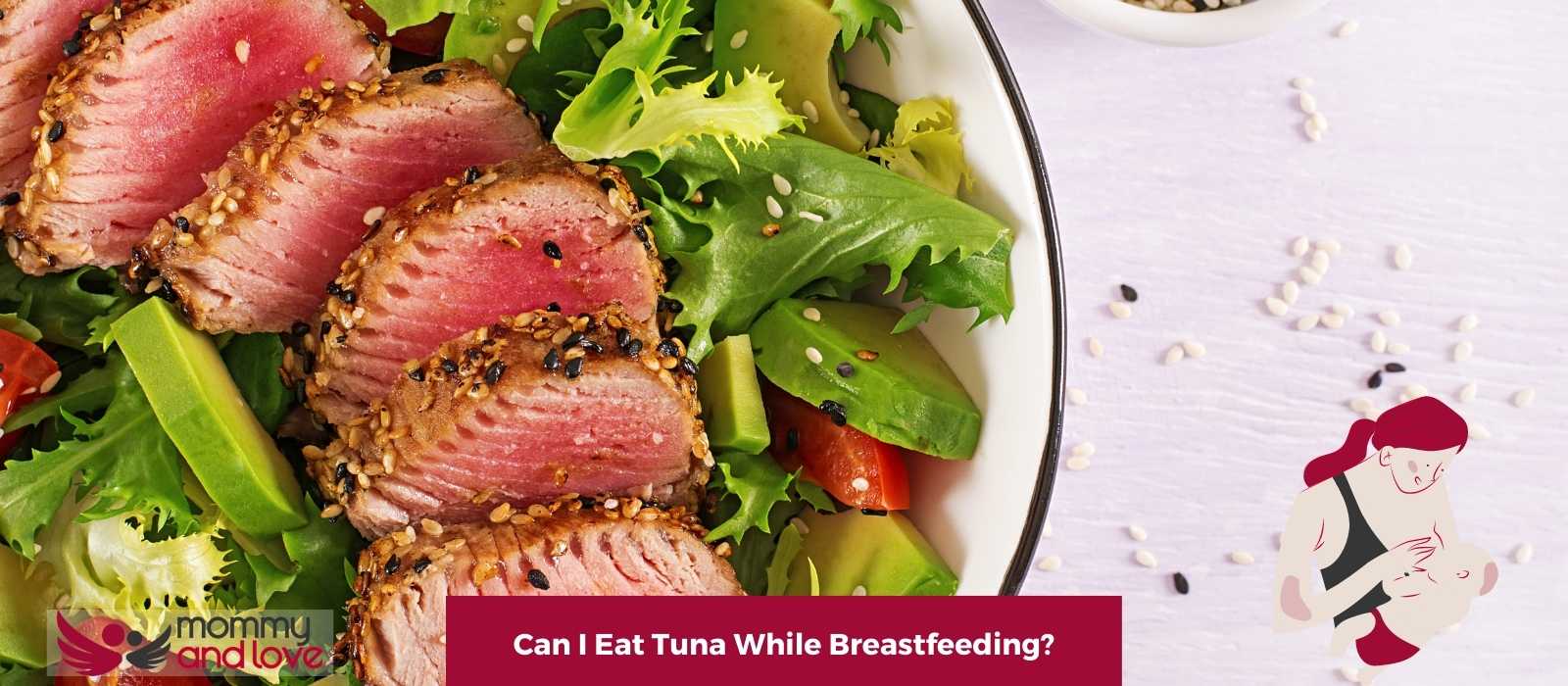Many breastfeeding moms are curious about whether they can eat fish or avoid fish altogether.
Most fish have mercury in them. Bigger fishes such as tuna are high in mercury content, so it is one of the seafood that should be avoided while breastfeeding. Mercury toxins can reach your baby’s brain and nervous system even in small amounts through breast milk.
If you are pregnant or breastfeeding, you should avoid eating any type of tuna that has high levels of mercury. This includes albacore tuna and white tuna. If you are looking for a low-mercury alternative to tuna, you can try salmon or trout. These fish have lower levels of mercury than tuna, but they still contain healthy amounts of omega-3 fatty acids.
What are the benefits of eating tuna while breastfeeding?

Tuna is one of the healthiest foods on earth because it contains nutrients that are otherwise hard to find in other foods.
They contain the fat-soluble vitamins and long-chain omega 3 fatty acids DHA and EPA, both of which are good for the eyes, brain, reducing inflammation, and benefitting the cardiovascular system.
In the first few months of a baby’s life, when their brain, eyesight, and cardiovascular systems are developing, they are said to be particularly beneficial. It’s important that mom consumes these healthy fats because they pass through breast milk!
They are also high in Vitamin D. Vitamin D supports the immune system, promotes bone health, helps combat depression, and may help prevent cancer.
Tuna, in particular, is an excellent source of protein. The average pregnant or breastfeeding woman needs about half her daily protein needs from just 5 ounces of high-quality protein from a canned tuna.
What are the health concerns of eating tuna when breastfeeding?
Nearly all fish and shellfish contain mercury. The main concern regarding eating tuna for breastfeeding mothers is its high mercury content. Mercury can reach your baby’s brain and nervous system even in small amounts through breast milk. This is the reason why it is not recommended to eat albacore, yellowfin and other big fish.
Fortunately, some types of tuna and some fish contain very low levels of mercury, so eating them in reasonable amounts is still safe. It is more beneficial to eat those types of fish than to avoid them. But nursing moms should never eat raw tuna, regardless of their mercury content.
If you eat fish caught by a family member, make sure that it is low mercury fish. Fish intake is an important part of a mother’s diet for as long as they choose fish of the right kind. Smoked salmon is very safe to eat when breastfeeding.
How much tuna can I eat when breastfeeding?
If you are pregnant or breastfeeding, you should avoid large fish like sharks, swordfish, king mackerel, tilefish, and bigeye tuna.
The mercury levels in fish such as albacore/white tuna, sushi, yellowfin tuna, ceviche, halibut, carp, or bluefish are moderate and therefore are ok for consumption in small amounts, but are still not recommended.
Pregnant or breastfeeding women should not avoid tuna or other fish for fear of mercury contamination. Rather than choosing mercury-rich fish, they should consume low-mercury types such as salmon, herring, sardines, mussels and skipjack tuna (canned light tuna).
Low-mercury tuna such as calamari, skipjack tuna or canned light tuna should be consumed up to two to three servings a week by pregnant and breastfeeding women. It is always a good idea to talk to your doctor if you want to eat canned tuna.
Skipjack tuna, also known as chunk light tuna, is one of the smaller tunas. It is, therefore, the best choice of tuna to consume during pregnancy or breastfeeding since it contains a third of the mercury in albacore tuna (solid white).
Does tuna affect breast milk?

Fish consumption such as tuna doesn’t help produce breast milk. However, mercury is known to pass through breastmilk and it can cause serious health issues to your baby.
Exposure to high levels of mercury can potentially damage a baby’s nervous system permanently.
Additionally, it can also impair the development of cognition, fine motor skills, visual awareness and speech and language skills.
Can a baby be allergic to tuna?
Food allergy to tuna is extremely rare. However, keep an eye out for signs of an allergic reaction from your baby after you have eaten tuna. Symptoms of an allergy include rashes, hives, stomach discomfort, nausea, vomiting and diarrhea.
Take Away on Tuna for the Breastfeeding Mother
While tuna is a healthy source of protein, it’s important to be mindful of the mercury content. Larger fish high in mercury including bigeye tuna and yellowfin should be avoided.
Breastfeeding moms stay away from large fish which has more mercury in them and should choose low mercury fish instead. A small fish is generally safe to eat. A smaller fish have less mercury.
For breastfeeding moms, it’s best to avoid eating tuna and other seafood that are high in mercury. Mercury toxins can reach your baby’s brain and nervous system even in small amounts through breastmilk.
If you’re looking for an alternative to tuna, there are plenty of other healthy fish options that you can enjoy while breastfeeding.
You can still eat tuna but choose the right kind of tuna that has low mercury content like skipjack tuna or canned light tuna.

This article was written by Sandra Baker – full time writer and the mother of four amazing kids (including twins!)
She’s also a breastfeeding counselor and has spent years helping new parents learn how to care for their children. When she’s not writing or caring for her children, Sandra likes to spend time reading and taking walks with her husband.




